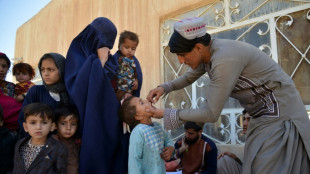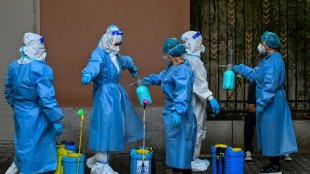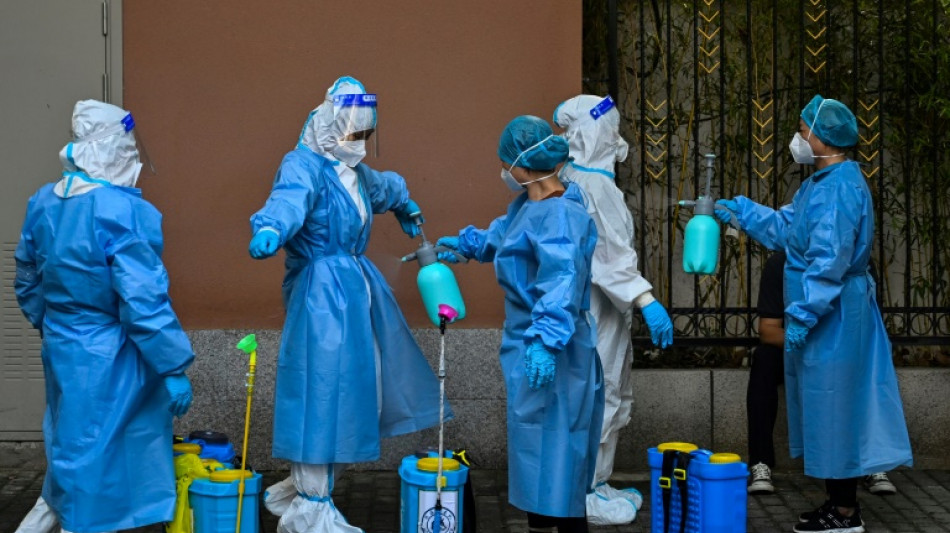
-
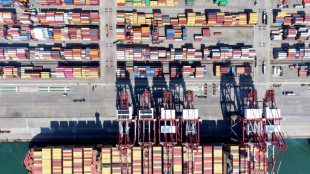 China's economy beat forecasts in first quarter ahead of Trump's 'Liberation Day'
China's economy beat forecasts in first quarter ahead of Trump's 'Liberation Day'
-
Trump orders critical minerals probe that may bring new tariffs
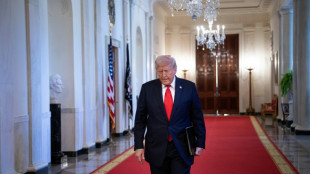
-
 Onana faces date with destiny as Man Utd chase Lyon win
Onana faces date with destiny as Man Utd chase Lyon win
-
Lessons in horror with Cambodia's Khmer Rouge tribunal
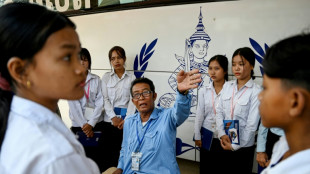
-
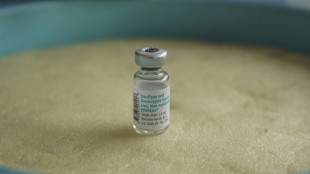 Pandemic agreement: key points
Pandemic agreement: key points
-
Paramilitaries declare rival government as Sudan war hits two-year mark
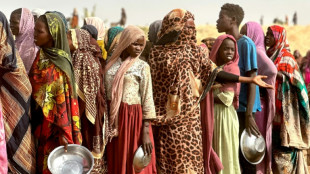
-
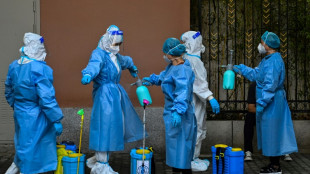 Landmark agreement reached at WHO over tackling future pandemics
Landmark agreement reached at WHO over tackling future pandemics
-
'La bolita,' Cuban lottery offering hope in tough times

-
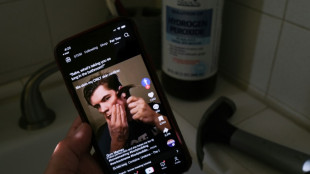 'Toxic beauty': Rise of 'looksmaxxing' influencers
'Toxic beauty': Rise of 'looksmaxxing' influencers
-
Facebook added 'value' to Instagram, Zuckerberg tells antitrust trial

-
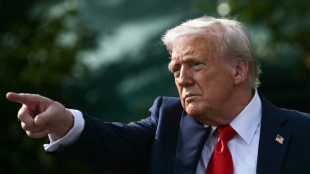 Trump signs order aimed at lowering drug prices
Trump signs order aimed at lowering drug prices
-
Paramilitaries declare rival government as Sudan war enters third year
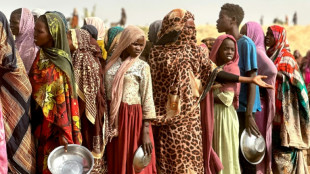
-
 Nvidia expects $5.5 bn hit as US targets chips sent to China
Nvidia expects $5.5 bn hit as US targets chips sent to China
-
Emery targets 'next step' for Aston Villa after Champions League heroics

-
 'Gap too big' for Dortmund after first leg, says Guirassy
'Gap too big' for Dortmund after first leg, says Guirassy
-
Maradona's daughter says doctors could have prevented his death
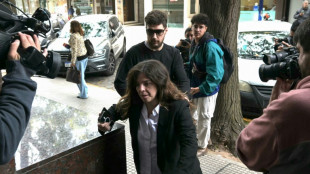
-
 Barcelona 'justified' semi-final spot despite Dortmund loss, says Flick
Barcelona 'justified' semi-final spot despite Dortmund loss, says Flick
-
'We thought the tie was over': Dembele admits PSG switched off against Villa

-
 Wine consumption falls heavily into the red
Wine consumption falls heavily into the red
-
Barca through to Champions League semis despite Guirassy hat-trick

-
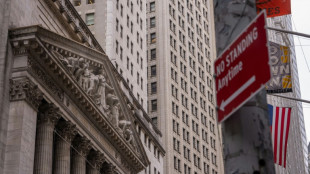 Global stocks mixed amid lingering unease over trade war
Global stocks mixed amid lingering unease over trade war
-
PSG survive Aston Villa scare to reach Champions League semis

-
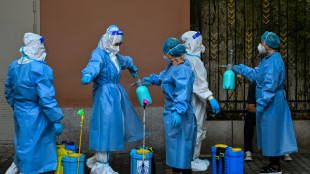 Pandemic treaty talks fight late hurdles
Pandemic treaty talks fight late hurdles
-
Trump resurrects ghost of US military bases in Panama

-
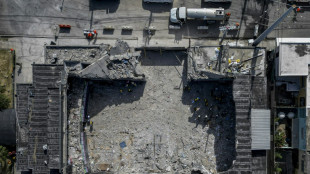 Family seeks homicide charges against owners of collapsed Dominican nightclub
Family seeks homicide charges against owners of collapsed Dominican nightclub
-
Sudan paramilitary chief declares rival government two years into war
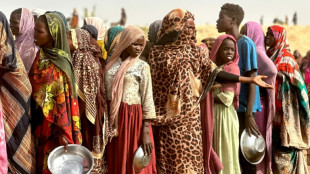
-
 Boeing faces fresh crisis with US-China trade war
Boeing faces fresh crisis with US-China trade war
-
Trump eyes slashing State Department by 50 percent: US media

-
 Canada offers automakers tariff relief, Honda denies weighing move
Canada offers automakers tariff relief, Honda denies weighing move
-
Facebook added 'value' to Instagram, Zuckerberg says in antitrust trial

-
 French Ligue 1 clubs vote to break TV deal with DAZN
French Ligue 1 clubs vote to break TV deal with DAZN
-
Peru court sentences ex-president Humala to 15 years for graft
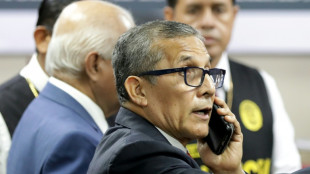
-
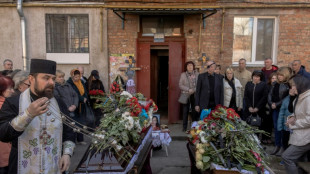 Sumy buries mother and daughter victims of Russian double strike
Sumy buries mother and daughter victims of Russian double strike
-
Trump says ball in China's court on tariffs
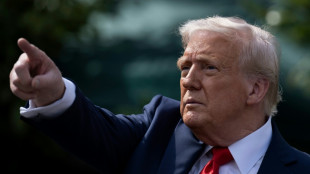
-
 Kane urges Bayern to hit the mark against Inter in Champions League
Kane urges Bayern to hit the mark against Inter in Champions League
-
Trump ramps up conflict against defiant Harvard
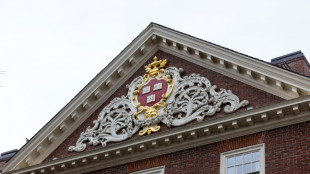
-
 Arteta feeding Arsenal stars 'opposite' of comeback message
Arteta feeding Arsenal stars 'opposite' of comeback message
-
France's Macron honours craftspeople who rebuilt Notre Dame
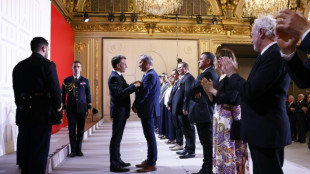
-
 Watkins left on Villa bench for PSG return
Watkins left on Villa bench for PSG return
-
Chahal stars as Punjab defend IPL's lowest total of 111 in 'best win'

-
 French swim star Marchand considered taking year-long break
French swim star Marchand considered taking year-long break
-
Chahal stars as Punjab defend IPL's lowest total of 111

-
 Universal Studios, Venice Beach to host LA 2028 events
Universal Studios, Venice Beach to host LA 2028 events
-
IOM chief urges world to step up aid for Haiti
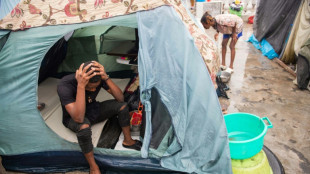
-
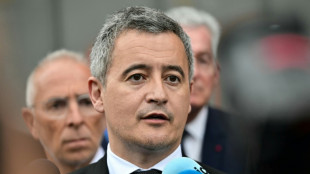 French prisons hit by mystery arson and gunfire attacks
French prisons hit by mystery arson and gunfire attacks
-
Alcaraz follows Ruud into Barcelona Open last 16

-
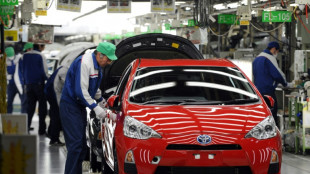 Stocks rise on bank earnings, auto tariff hopes
Stocks rise on bank earnings, auto tariff hopes
-
Trump showdown with courts in spotlight at migrant hearing
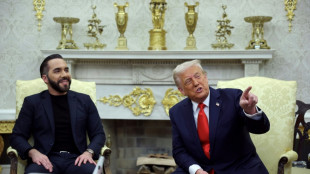
-
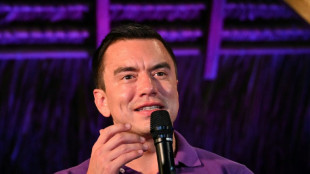 Ecuador electoral council rejects claims of fraud in presidential vote
Ecuador electoral council rejects claims of fraud in presidential vote
-
Russia jails four journalists who covered Navalny
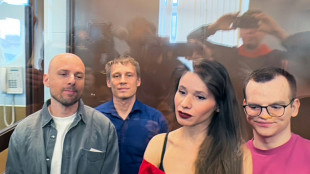

Pandemic treaty talks fight late hurdles
The head of the World Health Organization made a new plea for action Tuesday as talks on a landmark agreement on tackling future pandemics struggled to overcome late obstacles.
Negotiations, which have been going on four years, advanced slower than expected amid disagreements over the transfer of drugs and expertise to combat any new pandemic.
Five years after Covid-19 killed millions of people and devastated economies, experts have highlighted new health threats ranging from H5N1 bird flu to measles, mpox and Ebola, and WHO chief Tedros Adhanom Ghebreyesus told reporters at the talks "we need this now".
While taking measures to coordinate pandemic prevention, preparedness and response could be costly, Tedros said that "the cost of inaction is much bigger".
With new threats like H5N1 bird flu and ebola being highlighted by experts, Tedros said "virus is the worst enemy. (It) could be worse than a war."
While cuts to US foreign aid spending and threatened tariffs on pharmaceuticals casting a new shadow over the talks, negotiators have stumbled over Article 11, which deals with technology transfer for pandemic health products -- particularly for developing countries, sources told AFP.
During the Covid-19 pandemic, poorer countries accused rich nations of hoarding vaccines and tests.
Countries that have large pharmaceutical industries have strenuously opposed the idea of mandatory tech transfers, insisting they be voluntary.
- 'Huge reverse' -
Countries reached "an accord in principle" early Saturday and then took a three-day break to seek final approval from capitals.
It had appeared the tech transfer obstacle could be overcome by adding that any transfer needed to be "mutually agreed".
But sources told AFP that major pharma countries had demanded that this phrase be added to other parts of the text.
That would be "a huge reverse from Saturday's text", lamented James Packard Love, head of the NGO Knowledge Ecology International, on the Bluesky social network.
Amidst the intense talks in corridors and closed rooms in the WHO headquarters, Tedros joined the negotiations late Tuesday and told reporters he thought the current draft was "good", "balanced" and that a deal would bring "more equity".
The United States, which has thrown the global health system into crisis by slashing foreign aid spending, has not taken part in the negotiations. President Donald Trump ordered a withdrawal from the United Nations' health agency after taking office in January.
The US absence, and Trump's threat to slap steep tariffs on pharmaceutical products, still hangs over the talks, making manufacturers and governments more jittery.
But NGOs insist it is time to close the deal.
"Although the agreement went through several compromises, it includes many positive elements," Doctors Without Borders (MSF) said Tuesday.
Michelle Childs, Director of Policy Advocacy at the Drugs for Neglected Diseases initiative (DNDi), voiced hope countries would cross the finish line.
"It would be a first in the history of international agreements," she said, in its recognition that when countries fund research and development of vaccines and other medical products, you "need to attach conditions to that funding that ensure public benefit".
If an agreement is sealed, the text will be put for final approval at the WHO's annual assembly next month.
D.Cunningha--AMWN
